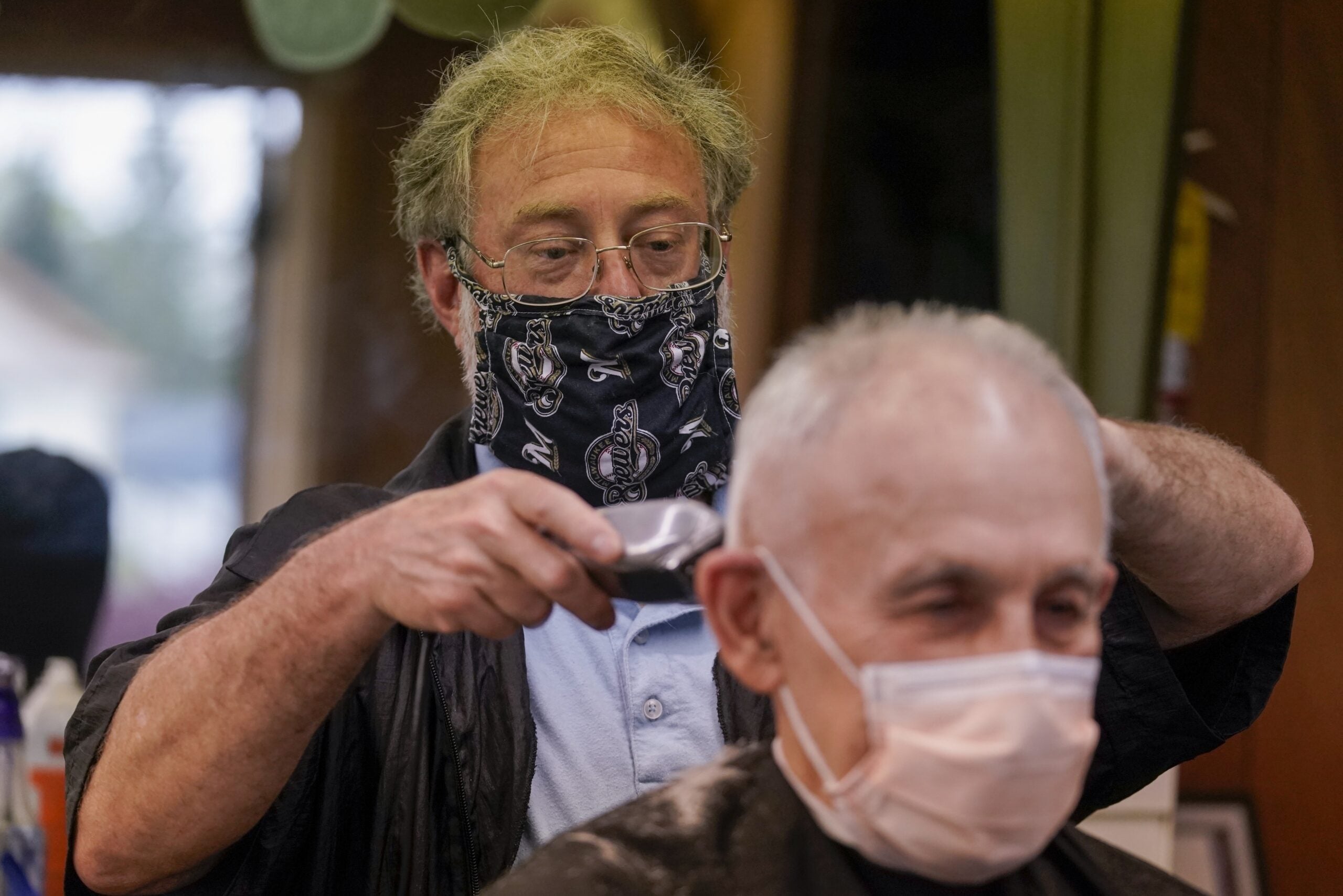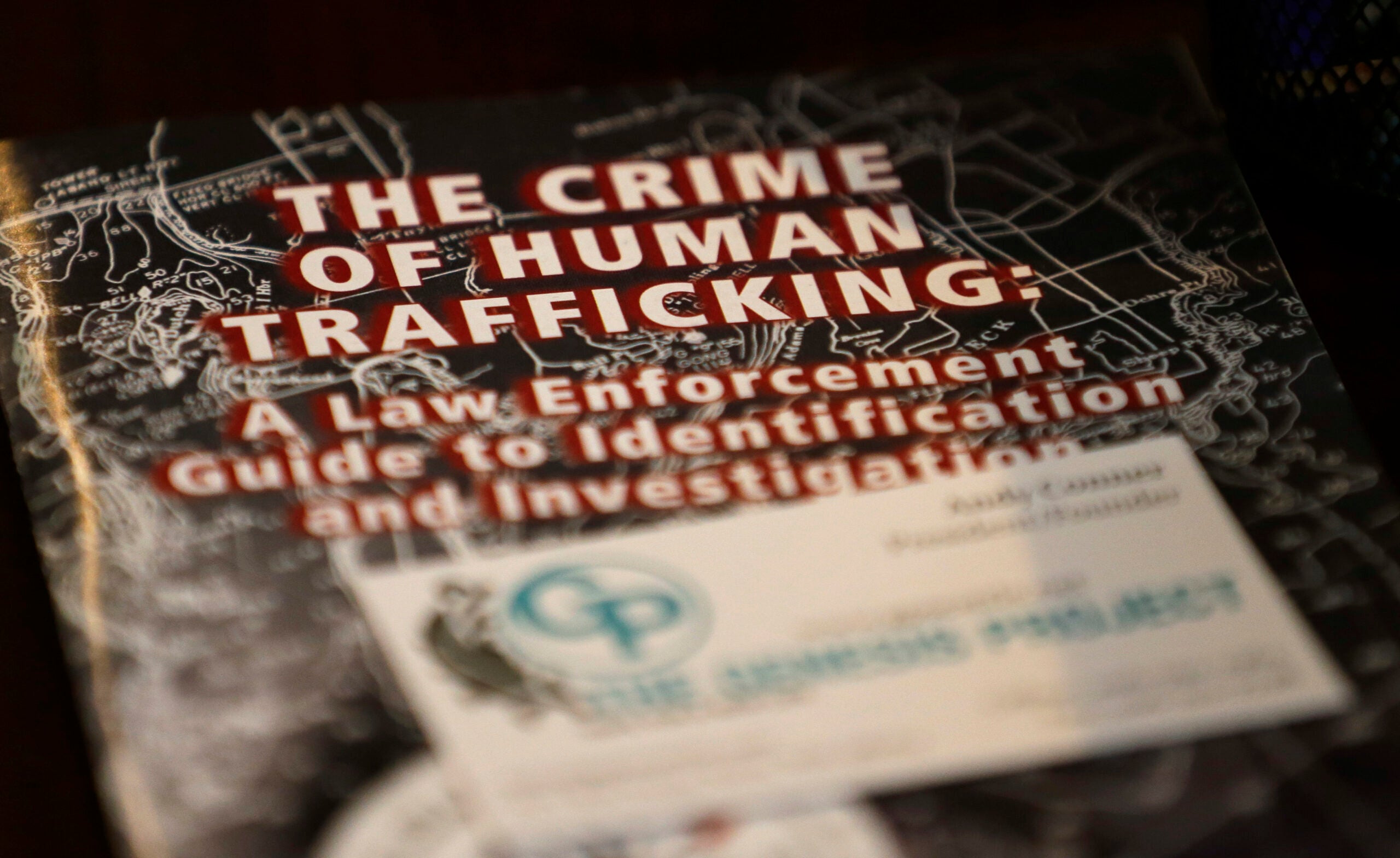Going to the gym, getting your hair cut, visiting the dentist — if you’ve done any of these activities since the coronavirus pandemic began, there’s a good chance you’ve been handed a waiver, signing away your right to sue the business if you contract COVID-19.
Such liability waivers are becoming popular in many industries unaccustomed to them, said Elizabeth Tippet, associate professor at the University of Oregon School of Law. Should you think before you sign? Yes, she said. But it’s also likely that you don’t have much of a choice, especially for an essential service.
“Your real choice (is), are you going to go through with your appointment or not?” she said.
Stay informed on the latest news
Sign up for WPR’s email newsletter.
A portion of the waiver for President Donald Trump’s June 20 rally, for example, tells attendees: “By clicking register below, you’re acknowledging that an inherent risk of exposure to COVID-19 exists in any public place where people are present.”
It can get dicey if a business doesn’t also offer the proper safety protocols along with the waiver, Tippet said. And like much else related to the coronavirus outbreak, it’s too soon to say how everything will play out, she said.
Tippet recently wrote a piece for “The Conversation” about waivers, and spoke with WPR’s “Central Time” host Rob Ferrett. Below are highlights from the interview.
The interview has been edited for brevity and clarity.
Rob Ferrett: What is some of the standard language we see in waivers for those day-to-day things, the haircut or the dentist appointment?
Elizabeth Tippett: Not all of the language is bad. Some of the language is actually kind of helpful. You need to wear a mask or, we want you to know that we’re taking social distancing seriously. But it would also contain language saying you assume the risk of death or injury from a COVID-19 infection and that you waive all claims against the business that you’ll be visiting.
RF: You make the case that waivers aren’t necessarily bad, unless a company’s whole approach to prevention is the waiver saying it’s not their fault if somebody gets sick — that worries you.
ET: I think the way that businesses should be handling this problem is one of shared risk. If you’re a customer, you are exposed to risk when you go to the business, but you’re also a risk for the workers at the business. It makes sense for these contracts to say you agree to take these precautions, we agree to take these precautions. And maybe it’s OK to have a waiver if both sides are already agreeing to do their part to minimize the health risk.
RF: Looking at enforceability, are businesses protected even if they’ve been negligent in the way they handle their health and hygiene?
ET: I’ve heard a lot of lawyers say it’s too early to say because we’re so early in this pandemic. There isn’t case law where judges are ruling on the enforceability of these waivers.
I would expect there to be state-level variation. Some states are really waiver-friendly, and they have the attitude that if you sign it, it’s binding. And that’s part of your freedom as an American, your freedom to sign away your rights. Other states are more cautious and protective and will look at the circumstances and whether it was “Take it or leave it,” and whether it’s bad for the public for these waivers to be enforceable. So I expect there to be an, “It depends,” kind of answer.
RF: What about looking at the business owner perspective, particularly small business owners, that they need to protect their businesses with a waiver?
ET: Yes … imagine if a customer comes in and infects other customers, not wearing a mask, infects their workers. Not only would they be worried about a lawsuit from the customer, but a worker’s comp claim from their workers or a lawsuit from the other customers. Everyone is in a difficult position right now. I think we need to take shared responsibility, and the customers need to do their part to reduce transmission as well.
RF: Companies that issue waivers, are they going to have to wave these waivers around in a courtroom, or are these preventative? (Are) people who’ve signed the waiver less likely to sue in the first place?
ET: I think it’s both. I think insurance companies really like these waivers because it deters people from filing claims and also it reduces the amount that you settle for because most of these cases get settled and the insurance company will say, “Hey, you don’t have a claim, you signed this waiver, so we’re going to settle with you for a lot less money.”
Wisconsin Public Radio, © Copyright 2025, Board of Regents of the University of Wisconsin System and Wisconsin Educational Communications Board.



